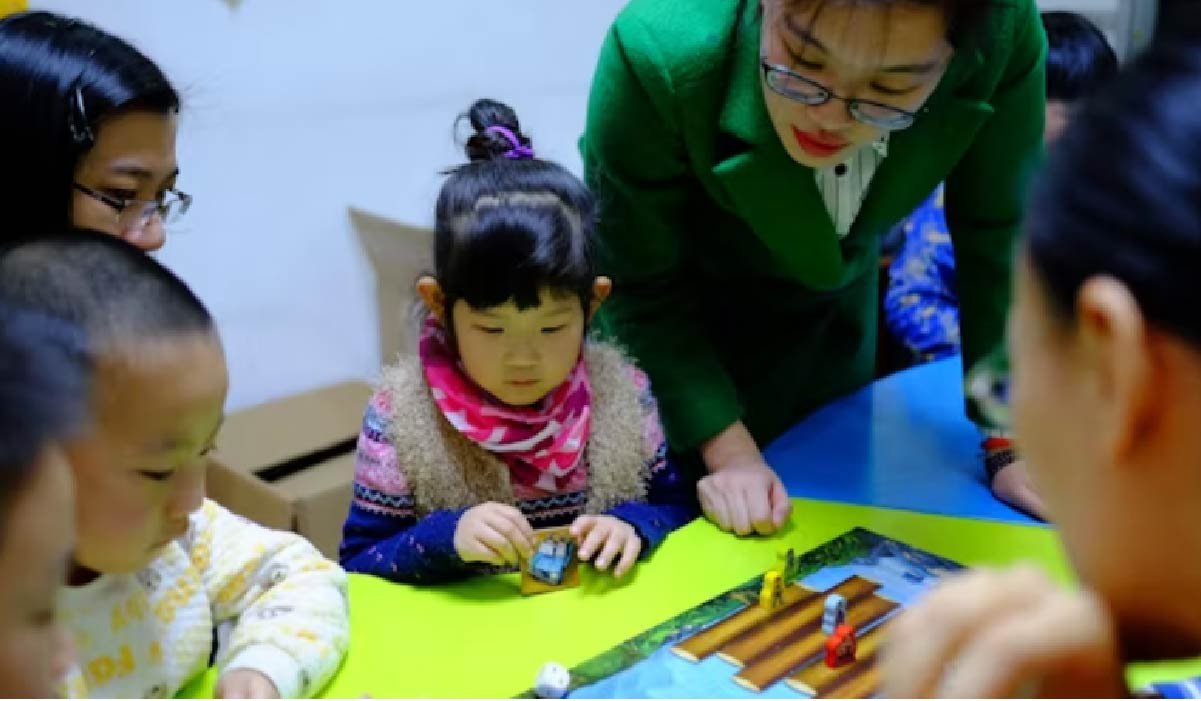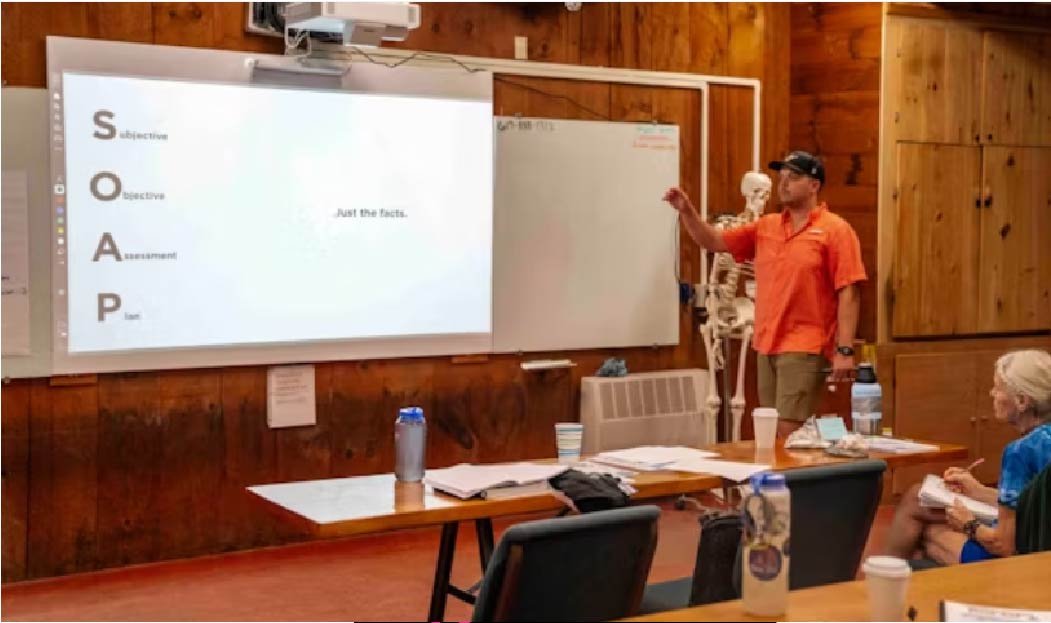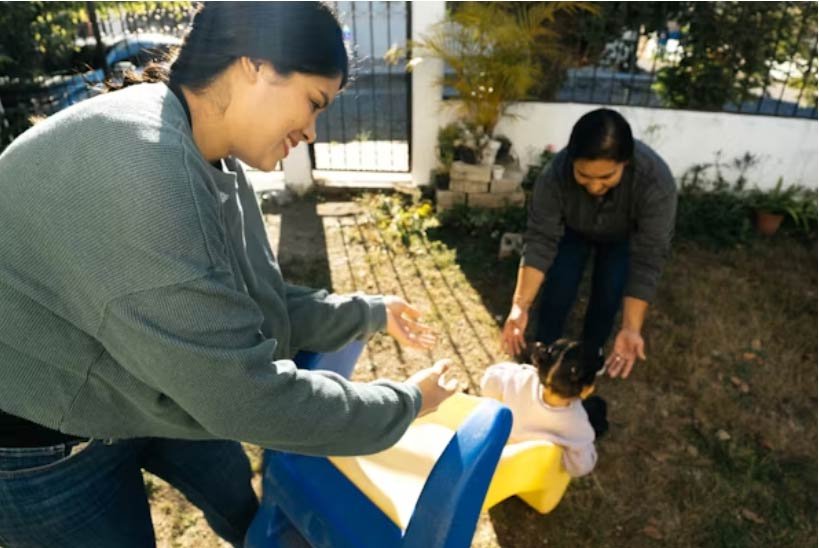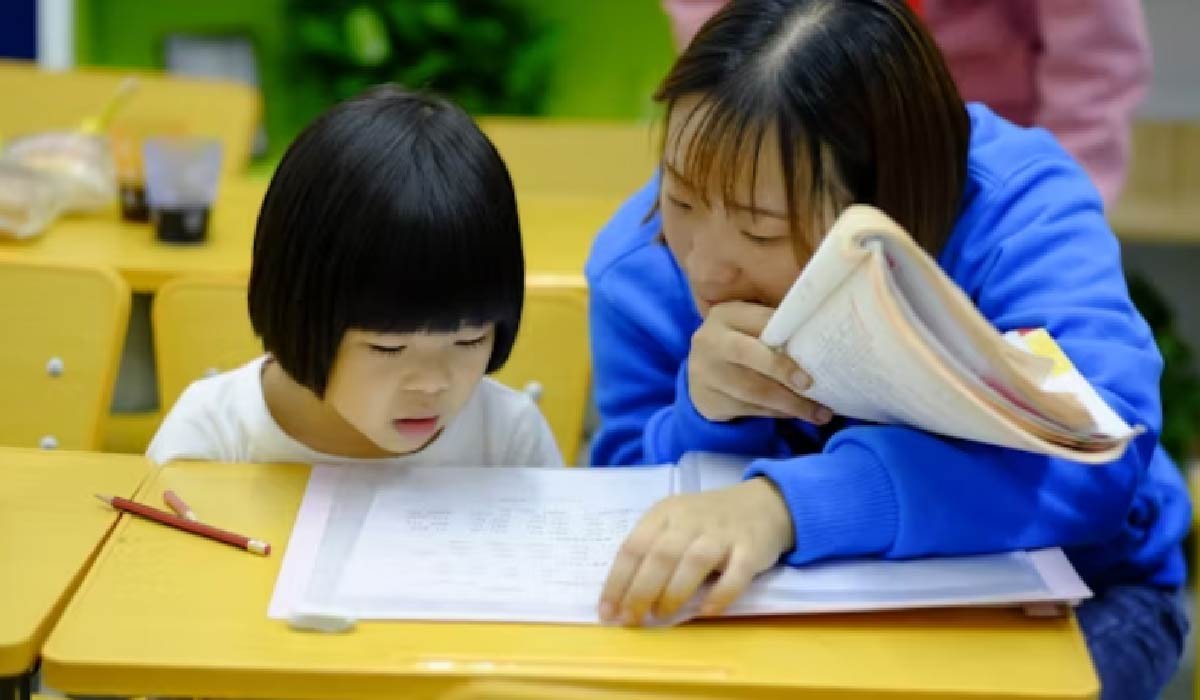Education
The Modern Path to Personal Growth: Investing in Skills, Education, and Well-Being for the Whole Family

In today’s rapidly evolving world, the pursuit of personal development has transformed from a luxury into a necessity. Families are increasingly recognising that investing in continuous learning, creative expression, and practical life skills creates a foundation for long-term success and fulfilment. This comprehensive approach to growth encompasses everything from early childhood education to professional development, emergency preparedness, and artistic exploration.
The Critical Foundation: Early Childhood Education
The journey of lifelong learning begins in the earliest years of a child’s life. Neuroscience research consistently demonstrates that the first five years of development are crucial for establishing cognitive, social, and emotional foundations that will support a child throughout their lifetime. Quality early childhood education doesn’t simply provide childcare—it creates an environment where young minds can flourish through structured play, social interaction, and age-appropriate learning experiences.
Parents navigating the complexities of modern work-life balance face the challenging decision of selecting an educational environment that aligns with their values and developmental goals for their children. The right early learning centre becomes an extension of the home, offering not just supervision but genuine educational enrichment. When evaluating options, families should consider the curriculum approach, educator qualifications, learning environment, and the centre’s philosophy on child development.
Modern early childhood centres emphasise play-based learning that encourages curiosity, problem-solving, and social skills. These formative experiences create neural pathways that support future academic achievement and emotional intelligence. For families in Singapore seeking comprehensive early years education, a quality clementi childcare centre can provide the nurturing environment and structured learning that sets children on a positive trajectory.
The benefits of quality early childhood education extend far beyond immediate childcare needs. Research shows that children who attend high-quality early learning programmes demonstrate better school readiness, higher graduation rates, and even improved career outcomes in adulthood. The social-emotional skills developed during these years—including cooperation, self-regulation, and empathy—form the bedrock of future success in both personal and professional realms.
Personal Development Through Neuro-Linguistic Programming
As children grow and adults continue their own development journey, understanding the mechanisms of thought, behaviour, and communication becomes increasingly valuable. Neuro-Linguistic Programming (NLP) has emerged as a powerful framework for personal transformation, offering practical tools for improving communication, overcoming limiting beliefs, and achieving personal and professional goals.
NLP operates on the principle that there’s a connection between neurological processes, language, and behavioural patterns learned through experience. By understanding and modifying these patterns, individuals can create profound shifts in how they perceive challenges, interact with others, and pursue their objectives. The applications of NLP span numerous domains—from business leadership and sales to therapy, education, and personal relationships.
For professionals seeking to enhance their interpersonal effectiveness or individuals looking to break through personal barriers, formal NLP training provides structured methodologies and practical techniques. The certification process typically involves learning specific models and strategies, including rapport-building techniques, reframing perspectives, anchoring positive states, and understanding representational systems.
The transformative potential of NLP lies in its practical applicability. Unlike purely theoretical frameworks, NLP provides actionable techniques that can be immediately implemented. Whether addressing public speaking anxiety, improving negotiation skills, or enhancing team leadership, NLP offers tools that create measurable improvements in real-world situations. The growing recognition of emotional intelligence in professional settings has further elevated the value of NLP competencies in the modern workplace.
Those interested in deepening their understanding of human behaviour and communication patterns might explore becoming an nlp practitioner in Sydney, where comprehensive training programmes offer both theoretical knowledge and hands-on practice. These certifications not only enhance personal capabilities but also open doors to coaching, therapeutic, and consulting opportunities.

Essential Life Skills: First Aid and Emergency Preparedness
While personal and professional development captures significant attention, one of the most practical and potentially life-saving skills often receives insufficient focus: first aid and emergency response. The ability to respond effectively in medical emergencies represents a fundamental responsibility for parents, educators, workplace supervisors, and community members.
Statistics reveal a sobering reality: many preventable deaths occur simply because bystanders lack the knowledge or confidence to provide immediate assistance before professional medical help arrives. Cardiac arrests, choking incidents, severe bleeding, and allergic reactions all require rapid intervention, and the first few minutes are often critical in determining outcomes.
Comprehensive first aid training extends well beyond basic bandage application. Modern courses cover CPR (cardiopulmonary resuscitation), AED (automated external defibrillator) operation, recognition and treatment of shock, management of burns, fractures and sprains, and response to environmental emergencies. These skills prove invaluable not only in crisis situations but also in everyday scenarios where minor injuries require appropriate treatment.
The psychological benefits of first aid training shouldn’t be underestimated. Individuals who have completed comprehensive courses report feeling more confident in their ability to handle emergencies, which translates to calmer, more effective responses when actual situations arise. This confidence ripples outward, creating safer communities where more people possess the capability to assist in medical emergencies.
For families and professionals in Queensland, obtaining certification through quality programmes such as cpr first aid in Brisbane ensures compliance with workplace requirements while providing peace of mind that comes from emergency preparedness. Regular refresher training maintains skill currency and confidence, as emergency response techniques evolve with medical research and best practices.

Creative Expression: The Underestimated Pillar of Personal Development
Amidst the emphasis on academic achievement, professional skills, and practical competencies, creative expression often receives inadequate attention. Yet artistic pursuits offer profound benefits for cognitive development, emotional regulation, and overall wellbeing. Engaging in creative activities stimulates different neural networks than analytical tasks, promoting whole-brain development and cognitive flexibility.
Watercolour painting, in particular, offers an accessible entry point into artistic expression. This medium combines technical skill with spontaneous creativity, teaching patience, observation, and the acceptance of imperfection. The translucent, flowing nature of watercolours encourages experimentation and adaptability—qualities that transfer beneficially to other life domains.
For adults, creative hobbies provide essential stress relief and mental restoration. The focused attention required for artistic creation induces a flow state that quiets mental chatter and reduces anxiety. Research demonstrates that regular engagement in creative activities correlates with improved problem-solving abilities, enhanced emotional intelligence, and even better physical health outcomes.
The cognitive benefits of visual arts education extend into academic performance. Studies show that students engaged in regular arts activities demonstrate improved spatial reasoning, enhanced memory retention, and better attention control. These transferable skills support achievement across all subject areas, making creative education a valuable complement to traditional academic curricula.
Children particularly benefit from unrestricted creative exploration. Unlike structured academic tasks with definitive correct answers, artistic expression validates individual interpretation and emotional communication. This freedom supports healthy identity development and provides an outlet for processing complex feelings. Families looking to encourage artistic development might explore quality Watercolour paint sets that provide professional-grade materials at accessible price points, making sustained creative practice feasible.

Academic Excellence: Supporting Students Through Critical Educational Transitions
As children progress through the educational system, certain transition points present particular challenges that can significantly impact future opportunities. The Higher School Certificate (HSC) represents one such critical juncture, where academic performance directly influences university admissions and career pathways. English, as a core subject within the HSC, carries particular weight due to its universal requirement and the complex analytical and creative skills it assesses.
Many students struggle with HSC English not due to lack of intelligence or effort, but because the subject demands a sophisticated integration of textual analysis, conceptual understanding, creative expression, and examination technique. Unlike mathematics, where problem-solving follows relatively clear procedures, English requires interpretive thinking, persuasive argumentation, and the ability to construct nuanced responses under time pressure.
Quality tutoring support provides struggling students with personalised attention that clarifies conceptual misunderstandings, develops analytical frameworks, and builds examination confidence. Effective tutors don’t simply provide answers but teach thinking strategies that students can independently apply across various texts and question types. This metacognitive development—learning how to learn—represents the most valuable outcome of educational support.
Beyond immediate grade outcomes, the analytical and communication skills developed through rigorous English study provide lifetime benefits. The ability to construct coherent arguments, analyse complex information, and communicate effectively across contexts remains relevant throughout professional and civic life. Investment in English education thus represents preparation not merely for examinations but for engaged citizenship and professional success.
For families in New South Wales navigating this critical academic period, specialised support through programmes such as hsc english tutoring can make the difference between frustration and achievement. The individualised attention and targeted skill development available through expert tutoring often unlocks potential that classroom instruction alone cannot fully realise.

The Interconnected Nature of Personal and Family Development
When viewed holistically, these diverse developmental domains—early childhood education, personal development training, emergency preparedness, creative expression, and academic support—form an interconnected ecosystem of growth. Each element reinforces the others, creating compounding benefits that extend throughout life.
Early childhood education establishes cognitive foundations and learning dispositions that support future academic achievement. Personal development training like NLP enhances the self-awareness and communication skills necessary for effective parenting and professional success. First aid knowledge provides the confidence and capability to protect loved ones in emergencies. Creative pursuits develop the cognitive flexibility and emotional intelligence that enhance both personal relationships and professional problem-solving. Academic support during critical transitions ensures that temporary challenges don’t derail long-term potential.
Families that approach development strategically, recognising these interconnections, create environments where every member can thrive. Rather than viewing education, skill-development, and creative expression as competing priorities demanding limited time and resources, they can be understood as complementary investments that mutually reinforce positive outcomes.
Practical Implementation: Building Your Family’s Development Plan
Translating these developmental principles into practical action requires intentional planning and sustained commitment. Begin by assessing current strengths and identifying priority areas for growth within your family context. Consider age-specific needs—young children require quality educational environments and creative exploration opportunities, while adolescents may benefit from academic support and personal development training.
Financial investment in development should be viewed through a long-term lens. While quality early childhood education, professional training, and tutoring support represent significant expenses, the lifetime returns on these investments typically far exceed the initial costs. Prioritise expenditures based on developmental urgency and potential impact, recognising that interventions during critical periods often yield disproportionate benefits.
Create routines and rhythms that embed developmental activities into regular family life. Designate creative time for artistic expression, establish emergency preparedness as a shared responsibility with regular skill refreshers, and normalise continuous learning as a family value. When development becomes integrated into daily patterns rather than exceptional events, sustainable progress becomes achievable.
Seek out communities and resources that support your developmental goals. Connect with other families pursuing similar objectives, engage with educational institutions that align with your values, and utilise professional services that provide expertise beyond what self-directed efforts can achieve. Development doesn’t occur in isolation but within supportive networks that provide encouragement, accountability, and shared learning.
Measuring Progress and Celebrating Growth
Effective development requires not only sustained effort but also periodic assessment and celebration of progress. Establish both quantitative and qualitative markers for tracking growth across different domains. For young children, developmental milestones and school readiness indicators provide concrete benchmarks. Academic performance offers measurable outcomes for students receiving tutoring support. Personal development can be assessed through self-reflection, behavioural changes, and feedback from others.
However, not all meaningful growth can be easily quantified. Enhanced confidence, improved emotional regulation, deeper family connections, and expanded creative expression represent valuable outcomes that resist simple measurement. Maintain awareness of these qualitative improvements through journaling, family discussions, and reflective practices that capture subjective experiences of growth.
Celebrate achievements at every level, from small incremental improvements to major milestones. Recognition reinforces motivation and creates positive associations with developmental efforts. Family celebrations of educational achievements, completion of training certifications, mastery of new skills, or creation of artistic works build a culture that values growth and acknowledges the effort required to achieve it.
Conclusion
Personal and family development represents not a destination but an ongoing journey that continues throughout life. The specific focuses shift as children mature, careers evolve, and life circumstances change, but the fundamental commitment to continuous growth remains constant. By establishing strong foundations in early childhood, building practical life skills, nurturing creative expression, supporting academic achievement during critical transitions, and investing in personal development, families create trajectories toward flourishing lives.
The integration of these diverse developmental elements—from quality childcare and NLP training to first aid certification, artistic expression, and academic tutoring—reflects a comprehensive understanding of human potential. Each component addresses different aspects of the whole person, acknowledging that cognitive, emotional, creative, and practical capabilities all contribute to success and satisfaction.
In an era of rapid change and increasing complexity, the families and individuals who thrive will be those who embrace continuous learning, maintain adaptive capacity, and invest consistently in multifaceted development. The specific paths will vary based on individual circumstances, interests, and goals, but the underlying principle remains universal: intentional investment in growth across multiple domains creates compounding returns that extend throughout life and across generations.
-

 Celebrity1 year ago
Celebrity1 year agoWho Is Jennifer Rauchet?: All You Need To Know About Pete Hegseth’s Wife
-

 Celebrity1 year ago
Celebrity1 year agoWho Is Mindy Jennings?: All You Need To Know About Ken Jennings Wife
-

 Celebrity1 year ago
Celebrity1 year agoWho Is Enrica Cenzatti?: The Untold Story of Andrea Bocelli’s Ex-Wife
-

 Celebrity1 year ago
Celebrity1 year agoWho Is Klarissa Munz: The Untold Story of Freddie Highmore’s Wife
















